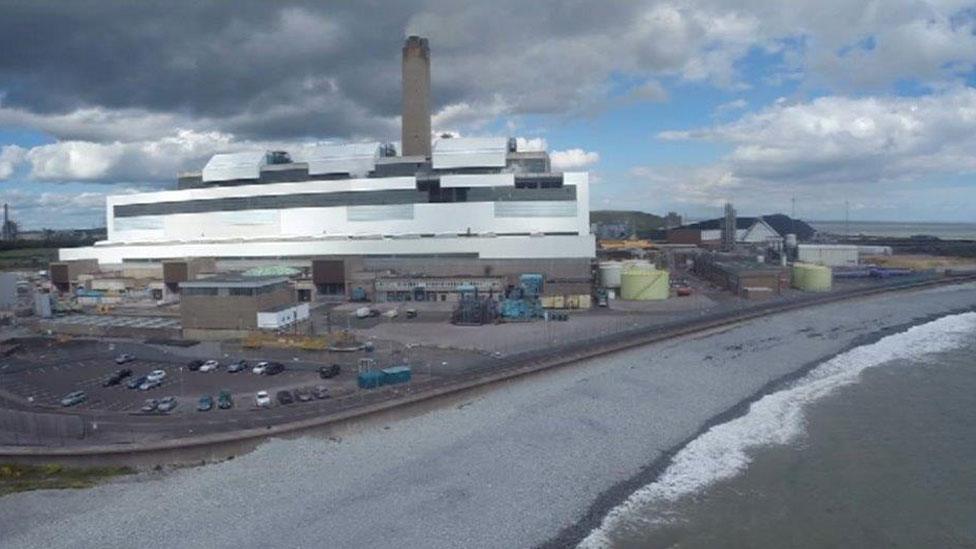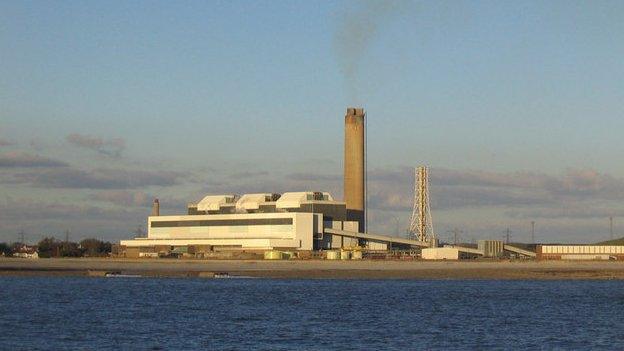Aberthaw power station to downgrade operations
- Published

Aberthaw started operating 45 years ago
Wales' biggest coal-fired power station is to downgrade its operations due to "challenging" market conditions.
Aberthaw in the Vale of Glamorgan will from April 2017 only generate electricity when needed, such as in the winter months.
Owner RWE wants to secure its future and said it was too early to speculate on the impact on 600 jobs there.
It will also take more coal from suppliers beyond Wales, which could have a knock on effect on producers.
The UK government has already said it wants all coal-fired power stations to close by 2025.
A RWE spokeswoman said it wants to keep Aberthaw operating into the 2020s and this would make it more affordable.
The reduction in output will result in job losses at the plant but details have not been finalised.
The station, which began operating in 1971, can generate around 1555MW of electricity for the National Grid - enough to meet the needs of some three million households.
It will invest in new technology to enable all three of the stations' 500MW units to expand the range of coal they can use.
It is claimed this will yield a 30% reduction in nitrogen oxide (NOx) emissions when burning higher volatile fuels.
'Hard work'
It comes as the European Court of Justice considers a case brought against the UK government over claims Aberthaw Power station is breaking emission regulations.
Nitrogen oxides released into the environment from burning fuels have serious consequences for human health and the environment, causing respiratory illnesses, acidifying soil and surface water, and damaging vegetation.
Expanding the range of coal used at Aberthaw could have a knock on effect on the opencast mining industry in Wales, with the station being a key customer for Welsh coal.
Suppliers include Tower Colliery, which is now a purely opencast operation.
Richard Little, Aberthaw power station manager, said: "When market conditions are very difficult it is testament to the hard work and dedication of our people that we can adapt the station to ensure that it continues to play a key role into the future."
The UK has been taken to court by the European Commission in recent weeks over claims the power station has been pumping out more than double the legal amount of nitrogen oxides for seven years.
The UK government has said that air quality "has improved significantly" thanks to £2bn investment over the last five years.
- Published26 March 2015

- Published16 October 2014
